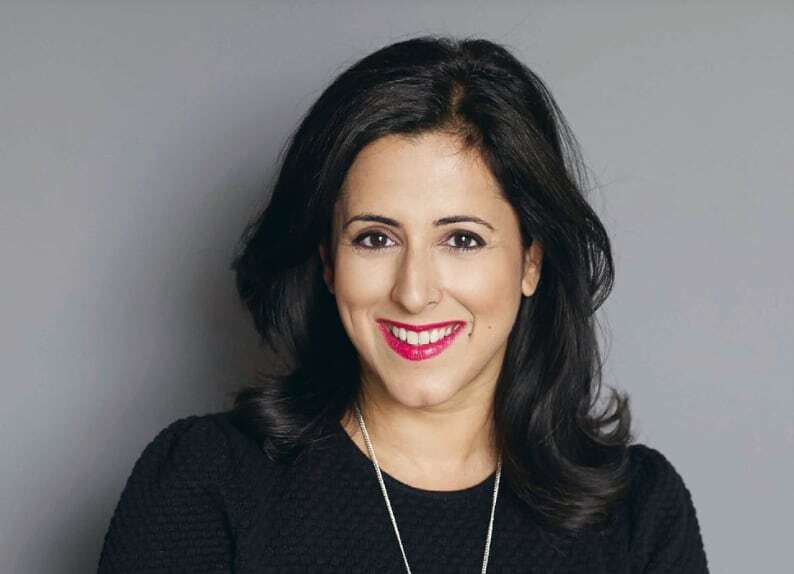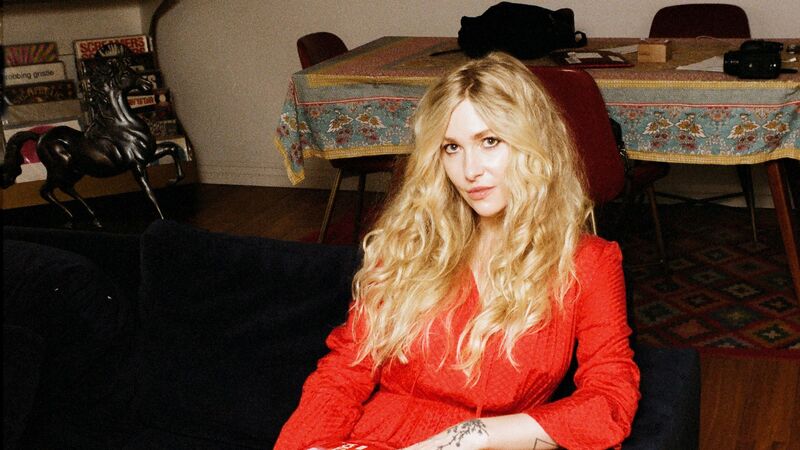You are viewing your 1 free article this month. Login to read more articles.
Anita Anand | I started picking at the thread of her story, and with every tug, an avalanche of stuff came down

Caroline Sanderson is a non-fiction writer, editor and books journalist. Her books include a travel narrative, A Rambling Fancy: in the F ...more
 Caroline Sanderson
Caroline SandersonCaroline Sanderson is a non-fiction writer, editor and books journalist. Her books include a travel narrative, A Rambling Fancy: in the F ...more
When asked to contribute a list of interests to her Who’s Who entry, Sophia Duleep Singh — the subject of a forthcoming biography, Sophia: Princess, Suffragette, Revolutionary, by BBC political journalist and broadcaster Anita Anand — gave only one: “The Advancement of Women”. It was a deceptively brief, if ultimately fitting, précis of the astonishing life of a woman who was a royal princess in exile; a goddaughter of Queen Victoria; a “best-dressed” English society pages darling; a champion dog breeder; a resident of Hampton Court Palace . . . and also a revolutionary and a militant suffragette.
Born in 1876 into the upper echelons of Victorian society, Sophia was the third and youngest daughter of Duleep Singh, the exiled Maharajah of the Kingdom of the Sikhs. His father—Ranjit Singh, “The Lion of the Punjab”—had brought peace and prosperity to his realm, with the Koh-I-Noor Diamond strapped to his arm like an amulet. When his premature death plunged the Punjab into turmoil, the British saw their chance. The diamond was appropriated, the heir deposed. Aged 15, Duleep found himself living in England. Queen Victoria was very taken with his ‘“exotic beauty”—“I always feel so much for these poor deposed Indian princes”—and he was granted a substantial income by the India Office.
Sophia grew up among the English aristocracy, estranged from her illustrious heritage. Her childhood was mostly miserable. Before her 16th birthday, she had suffered the deaths of her shy, vulnerable mother and her beloved younger brother, Edward. Her disillusioned father—by then leading a largely dissolute life—abandoned his motherless family and decamped to the continent with a dancer from Lambeth. Sophia’s siblings were her consolation. Though their fates were to take widely differing courses, Sophia remained close to her two surviving brothers, and devoted to her sisters, Bamba and Catherine.
Sophia’s first biographer shares a common heritage with her subject. Anita Anand was born in east London to Indian parents whose families came to Britain from the Punjab after Partition. “Pre-Partition, my father’s family lived in an area which formed part of Ranjit Singh’s empire, close to the north-west frontier and Afghanistan”. She and Sophia also share a name, albeit via marriage: Anand’s husband is science writer Simon Singh, whom she met in the Writers’ Room at Cheltenham Literature Festival. “Our eyes met across a very wise Francis Wheen,” she recalls.
Chance discovery
Given the striking parallels between them, you might think that Sophia was a subject hand-picked by Anand. However, Sophia appears to have picked her. “In 2010, I was on maternity leave from the BBC. Because my son had just been born, I missed covering the general election so I was fidgety, really fidgety. Life had taken on a different pace, because previously I had been presenting two live shows a day: TV in the morning, radio in the afternoon. So I was reading everything I could lay my hands on, cereal packets, everything.”
Flicking through a local paper destined for the recycling, Anand saw an article about a suffragette exhibition at Richmond Museum. “The picture—of a suffragette dressed in Edwardian clothes—just leapt out at me because it looked completely wrong! I could see the woman was Indian. In fact, she looked like an auntie of mine. The article gave her name, Sophia Duleep Singh, so I started picking at the thread of her story, and with every tug, an avalanche of stuff came down”.
Anand is quick to point out that she is not a historian. “But I have a hack’s brain. As a journalist, when you come to something you don’t understand, you ask why.” She scaled her presenting duties down to the weekly Radio 4 show “Any Answers?”, to have more time for research—which was just as well, given the scope of the story she was unearthing.
Her book takes in a broad and turbulent sweep of history: the Anglo-Sikh wars, the British Raj and the early years of the fight for Indian independence, the rise of the Labour Party and trade unions, and the campaign for women’s suffrage.
“It was like the war. I thought: ‘Oh, I’ll be done by Christmas.’ Three or four years later, I was still thinking: ‘This story has got to stop somewhere!’ I realised I couldn’t write about who this mysterious woman was without writing about why she was. What creates somebody like that is the times they live in. Sophia happened to live in extraordinary times.”
Until her mid-twenties, Sophia lived the life of a “thoroughly English girl”, as she was once described by the journal Church Weekly. “Everyone loved her. She was almost as much a pet to the establishment as her father was. She closed her ears to all the important conversations that were going on around her and she was pointless, utterly pointless. I would hate to be stuck in a lift with her—I would have found her so tedious.”
So what transformed her into a revolutionary? ”The personal. She suddenly saw her own sisters struggling to be accepted and it started to matter.” Bamba travelled to Chicago, where women were able to train to be doctors. But halfway through her studies, her course was cancelled, thwarting her ambitions. Meanwhile, Catherine fell in love with a woman and was living a closet life in Germany. “These things put the grit into Sophia, and that became the pearl of her politics.”
Then came her first trip to India. “And India turned her head. It was foreign to her, utterly foreign. But she embraced it; she wanted to get under the skin of it. Then she came home to England and thought: ‘What am I going to do? What am I for?’”
Marching orders
The new Sophia embraced the fight for Indian independence, taking up the cause of the much-abused lascars, and joined the campaign for Votes for Women. When a procession of 300 suffragettes marched on Parliament in November 1910, Princess Sophia was right in the thick of it, taking a bruising with the best of them.
Anand is proud to call herself a feminist. “I was raised to have a voice at the dinner table. We were in many ways a traditional Indian family, but in that respect, not at all. I had to be able to contribute to a discussion, to have an interest in the world.” It’s not difficult to see how such an upbringing could lead to a career as a political journalist. Anand has interviewed five Indian prime ministers, and three from Pakistan, including the late Benazir Bhutto, whom she came to know well.
But she feels there is still work to be done for the cause of women in broadcasting. “We’ve come a long way: there are now two women presenting the ‘Today’ programme. But it’s still largely acceptable to have this grand figure of a male presenter, and a female sidekick. It often falls to the woman to do the touchy-feely story, and the man to take on the chancellor . . . I’d like that to be a little more even”. Anand, who describes radio as her “passion”, is an active supporter of Sound Women, a group which aims to build the confidence, networking and leadership skills of women in audio.
With the film “Suffragette”, starring Meryl Streep, due to be released around the same time as Sophia is published, the history of votes for women is set to be the centre of attention early next year. So what is Sophia’s legacy? “I count her as one of that regiment of extraordinary women who have given me power, and given every woman power. And that matters hugely. Because look at the state of women in countries where they don’t have [power]. When I hear Russell Brand say, ‘don’t bother voting’, it breaks my heart. People fought so hard to give you that vote. Don’t waste it. And don’t forget them.”
Metadata
Publication 15.01.15
Formats HB/EB/TPB
ISBN 9781408835456 / 9781408835463 / 9781408862001
Editor Alexandra Pringle
Agent Patrick Walsh, Conville & Walsh
CV
1972 Born in east London, raised in Essex
1990- 1993 Degree in English Literature, King’s College London
1995- 2004 News editor, Zee TV Europe
2004- 2013 Presenter for BBC Radio 5 Live’s “Drive” and “Anita Anand” shows
2009-present Co-presenter, BBC2’s “Daily Politics”(‘09-’12); presenter, BBC Radio 4’s “Any Answers?” (‘12-present)









